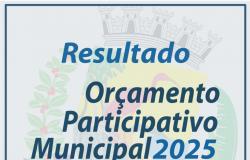Credit, Personal archive
When he was told he couldn’t celebrate the traditional Holy Week procession, he knew he was in trouble.
Léster Zayas, 45 years old, is not one of those priests who simply quotes biblical verses in his sermons.
From the pulpit of the Church of the Sacred Heart of Jesus, an imposing temple with 132 years of history in Havana, Cuba, he prefers to address more mundane subjects.
“I could always talk about heaven and forget earthly things, but the Gospel and Jesus Christ take us directly to Earth, to get in touch with people”, explains the priest to BBC News Mundo (BBC Spanish service) over the phone .
Addressing mundane issues in Cuba is talking about a country mired in an ongoing economic crisis, marked by food shortages, mass emigration and lack of energy — problems that the Cuban government attributes to sanctions imposed by the United States decades ago.
“It is impossible to be a priest in Cuba without saying what happens here, but of course this brings a lot of conflict,” says Father Léster.
Since the Cuban Revolution that brought Fidel Castro to power in 1959, the relationship between the State and the Catholic Church in the Caribbean country has evolved from open enmity to progressive understanding.
The government went from persecuting religious practices in the first decades of the regime to a gradual opening from the 1990s onwards — which culminated in the visits of Popes John Paul II, Benedict XVI and Francis.
According to the current 2019 Constitution, Cuba is a secular state that recognizes and guarantees religious freedom, although in practice congregations are strictly supervised by the authorities and have virtually no access to education and the media.
In the last Holy Week, celebrated at the end of March, the State authorized 111 processions across the country and banned at least two: one in the city of Bayamo and another, for the second consecutive year, in the neighborhood of Vedado, in the parish of Léster Zayas.
“According to the information that my superiors gave me, it was denied exclusively because of me, because apparently in my homilies I offend or bother certain people or they consider my homilies dangerous”, says the priest.
Léster considers the veto “absurd”.
“Because the processions are not the parish priest’s will; For me personally, a procession means little, but it is something that the people ask for.”
The BBC asked for a position from the Cuban government, but at the time of publication of the article it had not received a response.
‘Cuba is dying’
Credit, Personal archive
But what does this priest say in his homilies that could have bothered the Cuban government so much?
“What I say in my homilies is that here it is not possible to see reality and accept people’s suffering as normal”, he responds.
“Cuba is dying,” he says, without making explicit references to politicians.
The country is going through its worst economic crisis since the 1990 “Special Period in Peacetime”, the period of extreme misery that followed the dissolution of the island’s main benefactor, the Soviet Union, and the fall of the rest of the socialist bloc in the Eastern Europe.
The endemic crisis in the Cuban economy, anchored in a statist and centralized production model that many consider inefficient, has worsened since the pandemic due to the drop in tourism, reforms that did not produce the expected results and the tightening of United States sanctions, among others. factors.
This is being reflected in frequent power cuts, shortages of all types of products — from food and medicine to fuel — and in the largest exodus in the island’s history.
More than half a million Cubans, approximately 5% of the population, have emigrated to the United States, Spain and other countries in the last two and a half years.
In view of this, Father Léster Zayas considers that his mission is to listen to those who frequent the parish and respond to the “cry of the people”.
“They tell me they have nothing to eat; that your children go to school without barely having breakfast because there is no bread; that many elderly people are left alone and live destitute due to the migratory catastrophe; that people have no future and are all waiting for a visa to leave the country; that patients do not have medicines even though, according to the official discourse, we are a medical power; that there are more and more men and women living on the streets”, he says.
Worse relationship in recent years
We asked Léster how his disagreements with President Miguel Díaz-Canel’s government began.
He guarantees that, for a long time, his relationship with the authorities was cordial. But for approximately four years, he explains, “there has been no possibility of direct interaction; It is always through superiors.”
He recalls that his first, most direct conflict with the government was before the pandemic, when he criticized acts of repudiation — coordinated collective actions to harass dissidents.
“I made my absolutely negative assessment of these acts, which belong to the darkest pages of national history and are terribly violent, hateful, comparable to what was happening in Nazi Germany.”
Since then, he claims to be under pressure from his superiors, to whom messages arrive ordering the priest to remain silent, be punished or even leave the country.
“They also intimidate my superiors about the dangers I may face, even though I know I am not at any risk, because I know the laws of my country and I know how far one can go to avoid exceeding the laws or the Constitution”, he guarantees.
‘They say I’m brave, but I’m not’
Father Léster’s criticisms are not limited to the physical space of his parish.
He also uses social media a lot, where he publishes content that exposes the precarious situation in Cuba, denounces injustices and holds leaders and the political system that has prevailed on the island for 65 years accountable.
“If there is something that I think should be known because it is an attack on truth or rights, and I believe the source is true, then I share it,” he says.
Credit, Personal archive
Is he afraid of retaliation?
“Of course I do, but although I fear reprisals, I am even more afraid of not being faithful to my people”, replies the priest.
“People say I’m ‘brave’, but I’m not brave at all. What happens is that I’m more afraid of hell for not being faithful to the truth and sympathetic to people’s suffering than of anything else,” he says.
Since July 11, 2021, when some Cuban citizens called for freedom and better living conditions in the biggest demonstrations the island has seen in six decades, the State has intensified repression against critics of the regime.
Thousands of people have suffered fines, interrogations or prison sentences for expressing — in public or online — opinions against the government, according to human rights organizations.
Almost 300 people who participated in these protests were sentenced to prison, and some of them were sentenced to between 5 and 25 years for the crime of disturbing public order.
We asked Father Léster if he believes that his criticism goes beyond the government’s “red lines”, something that in Cuba could very well land a person behind bars.
“The big red line is what they call encouraging people to take to the streets, which is not even remotely my mission. It’s people’s right and they decide to do it for themselves,” she says.
He adds that “another red line is offending the leaders of the revolution, which is also far from me.”
“It is also not my mission to offend anyone. My homilies are not directed at the government, I do not speak for the government or against certain people, but for my parishioners”, he claims.
In any case, he recognizes that being a priest in the Catholic Church gives him some protection.
“I have always felt the support of my people within the institution. What they often tell me is to take care of myself, that they are with me, that they are attentive.”
Tags: Cuba priest challenges countrys regime
--





